Rhinoplasty in Cape Town
Search and Compare the Best Clinics and Doctors at the Lowest Prices for Rhinoplasty in Cape Town
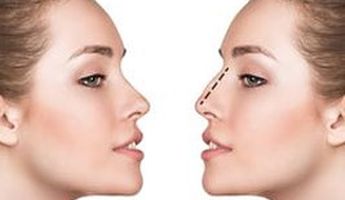
Find the best clinics for Rhinoplasty in Cape Town
With Medijump you can browse 4 facilities offering Rhinoplasty procedures in Cape Town. The cheapest price available is $5,724 in Johannesburg, Cape Town. And for the cheapest price globally, prices start from $101 in Poland.
Rhinoplasty in South Africa
Price: $ 5,724
Rhinoplasty in Johannesburg
Price: $ 5,724
Poland offers the best prices Worldwide
Price: $ 101
From 18 verified reviews
Juliettash Stadler, 05 May 2020
My Son was admitted with a very rare autoimmune illness in April this year. The care he was given was superb Prof Dheda, Prof Louw and their team of specialists covered every possibility , diagnosed efficiently and treated effectively. There was time taken to explain everything. The Hospital Matron made allowances for me to spend as much as possible time with my son and also allowed for frequent visits from close family. Mr Daniel Mathew the Hospital General manager is very approachable and interested . The staff was friendly and helpful. Basically every one from reception through admin to ICU was friendly and helpful. I Highly recommend this hospital
From 36 verified reviews
Kim Adams, 30 March 2020
Overall I had a good experience.
Dr Dawid Potgieter, located in Syfred Douglas St, Cape Town, South Africa offers patients Rhinoplasty procedures among its total of 90 available procedures, across 1 different specialties. Currently, there's no pricing information for Rhinoplasty procedures at Dr Dawid Potgieter, as all prices are available on request only, whilst the national average price is approximately £4,362. All procedures and treatments are undertaken by the lead specialist at the Hospital, and they have multiple recognized accreditations, including: HPCSA - Health Professions Council of South AfricaDepartment of Health, Western CapeFCS(SA) - Fellowship of the College of Surgeons of South Africa
From 16 verified reviews
Rebecca O'Connor, 23 September 2020
Dr. Gideon Maresky is amazing. I underwent otoplasty and rhinoplasty procedures and couldn't have asked for a better experience. Everything ran very smoothly.
- Home
- South Africa
- Cape Town
Compare Before & After Photos of _procedure_photos.phpRhinoplasty
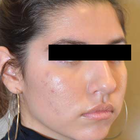
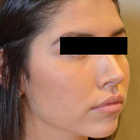
Half-side view
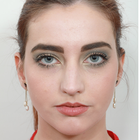
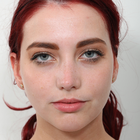
Front view
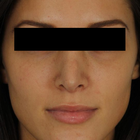
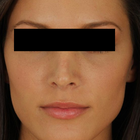
Front view
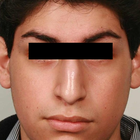
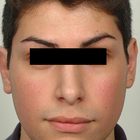
Front view
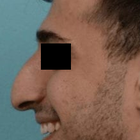
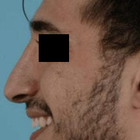
Full-side view
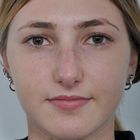
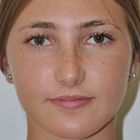
Front view
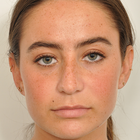
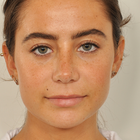
Front view
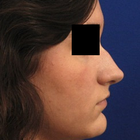
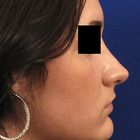
Full-side view
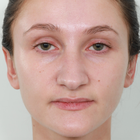
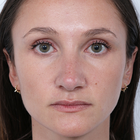
Front view
WHY US?
At Medijump, we're making medical easy. You can search, compare, discuss, and book your medical all in one place. We open the door to the best medical providers worldwide, saving you time and energy along the way, and it's all for FREE, no hidden fees, and no price markups guaranteed. So what are you waiting for?

Free

Best Price

Widest Selection

Risk-Free
What you need to know about Rhinoplasty in Cape Town

Rhinoplasty, commonly known as the “nose job,” is plastic surgery to change the shape of the nose and to improve its function. This procedure can be performed for medical and cosmetic reasons. Those with breathing problems caused by a birth defect, deviated septum, sinusitis, or an injury to the nose, as well as those who are not happy with the appearance of their nose, can undergo rhinoplasty.
Rhinoplasty has a number of benefits. However, the most compelling reason for patients to have this surgery is to improve the appearance of their noses, which can boost their self-esteem significantly. Besides altering the form and size of your nose, the procedure can also strengthen the bridge, narrow the nostrils, and reshape the tip.
While anyone can undergo rhinoplasty, teenagers are advised to wait until their nose has reached its adult size.
What does a Rhinoplasty Procedure Involve?
During rhinoplasty, you will be given local or general anesthesia to make sure that you are comfortable and you don't feel any pain. Your surgeon might perform the procedure inside your nose or through an incision at the base of your nose.
Changing the shape of your nasal bones or cartilage can be done in several ways, depending on how much needs to be added or removed, available materials, and your nose’s structure.
If your nose needs to be augmented because you want to increase its size, prosthetic implants or cartilage from your nasal septum or ear is used. Once your surgeon is done altering the shape of your nose and correcting any defect, they will place the nose’s skin and tissue back, then close the incisions with stitches.
How Long Should I Stay in Cape Town for a Rhinoplasty Procedure?
Depending on the complexity of the procedure and the type of anesthesia used, you may be able to leave the hospital on the same day or stay in the hospital for a day or two. The surgery itself takes around 1.5 to 3 hours to complete. Once you are discharged from the hospital, you should not leave Cape Town right away. Instead, plan to stay about 10 to 14 days for initial recovery and follow-up checkups. A week following the surgery, your surgeon will remove your stitches.
What's the Recovery Time for Rhinoplasty Procedures in Cape Town?
You generally need to wait at least 2 to 3 weeks until you can resume most of your normal activities. However, you should not perform any strenuous activities, such as intense exercise, for about 3 to 6 weeks. During the first few days after the surgery, you will experience some swelling around your eyes, but these will subside within 3 to 14 days. You will also have to wear a nasal splint for about a week following the surgery.
What sort of Aftercare is Required for Rhinoplasty Procedures in Cape Town?
Since you may experience some discomfort, your surgeon will give you painkillers to ease any pain and discomfort. Make sure to take the pain medication as prescribed. For a couple of weeks following the surgery, you should not blow your nose, as well as laughing or talking too much. You also need to avoid any clothes that need to be pulled over your head and glasses on your nose for a few weeks. Always make sure to cover your nose while going out in the sun during your recovery period.
It's important that you avoid bumping or hitting your nose, and keep your nose safe and protected from anything that could misalign the bones and undo the results. To help you recover smoothly and quickly, eat healthy and nutritious food.
What's the Success Rate of Rhinoplasty Procedures in Cape Town?
Rhinoplasty is considered one of the most complicated facial cosmetic surgeries. However, thanks to the advances in technology and surgeons’ extensive experience, the procedure has a very high success rate of between 85% and 90%.
Although rhinoplasty is generally safe, it does carry some potential risks of complications and side effects, including bleeding, infection, allergic reaction to the anesthesia, permanent numbness in your nose, difficulty breathing through the nose, an uneven-looking nose, discoloration, persisting pain, scarring, septal perforation, and a need for additional surgery.
Are there Alternatives to Rhinoplasty Procedures in Cape Town?
If you are unable to undergo rhinoplasty, you can opt for its minimally invasive or noninvasive alternatives, such as filler injections or Botox. Both filler injections and Botox are noninvasive and require only a very short visit with your doctor. It works by injecting the substance into your nose to change its shape. Many people choose these methods because it is not as painful as rhinoplasty, requires little to no downtime, and no incision or stitches are involved.
If you want to improve your breathing, you may be recommended to use nasal strips. The nasal strip is a type of bandage with adhesive-embedded splints or plastic ribs that is applied across the bridge of the nose and the sides of the nostrils. It can keep the airway open, making breathing easier.
Whilst the information presented here has been accurately sourced and verified by a medical professional for its accuracy, it is still advised to consult with your doctor before pursuing a medical treatment at one of the listed medical providers
No Time?
Tell us what you're looking for and we'll reachout to the top clinics all at once
Enquire Now

Popular Procedures in Cape Town
Prices Start From $404

Prices Start From $1,945

Prices Start From $192

Prices Start From $500

Recommended Medical Centers in Cape Town for Rhinoplasty

- Interpreter services
- Translation service
- Religious facilities
- Medical records transfer
- Medical travel insurance
- Health insurance coordination
- TV in the room
- Safe in the room
- Phone in the room
- Private rooms for patients available

- Interpreter services
- Translation service
- Religious facilities
- Medical records transfer
- Medical travel insurance
- Health insurance coordination
- TV in the room
- Safe in the room
- Phone in the room
- Private rooms for patients available

- Interpreter services
- Translation service
- Religious facilities
- Medical records transfer
- Medical travel insurance
- Health insurance coordination
- TV in the room
- Safe in the room
- Phone in the room
- Private rooms for patients available

- Interpreter services
- Translation service
- Religious facilities
- Medical records transfer
- Medical travel insurance
- Health insurance coordination
- TV in the room
- Safe in the room
- Phone in the room
- Private rooms for patients available

- Interpreter services
- Translation service
- Religious facilities
- Medical records transfer
- Medical travel insurance
- Health insurance coordination
- TV in the room
- Safe in the room
- Phone in the room
- Private rooms for patients available

- Interpreter services
- Translation service
- Religious facilities
- Medical records transfer
- Medical travel insurance
- Health insurance coordination
- TV in the room
- Safe in the room
- Phone in the room
- Private rooms for patients available

- Interpreter services
- Translation service
- Religious facilities
- Medical records transfer
- Medical travel insurance
- Health insurance coordination
- TV in the room
- Safe in the room
- Phone in the room
- Private rooms for patients available

- Interpreter services
- Translation service
- Religious facilities
- Medical records transfer
- Medical travel insurance
- Health insurance coordination
- TV in the room
- Safe in the room
- Phone in the room
- Private rooms for patients available

- Interpreter services
- Translation service
- Religious facilities
- Medical records transfer
- Medical travel insurance
- Health insurance coordination
- TV in the room
- Safe in the room
- Phone in the room
- Private rooms for patients available

- Interpreter services
- Translation service
- Religious facilities
- Medical records transfer
- Medical travel insurance
- Health insurance coordination
- TV in the room
- Safe in the room
- Phone in the room
- Private rooms for patients available
Rhinoplasty in and around Cape Town
About Cape Town
Cape Town is the legislative capital of South Africa and is also known as the Mother City. It is the oldest city in the country and home to the Parliament of South Africa and is a major destination for immigrants and expatriates, making it one of the most multicultural cities in the world. Located on the shore of Table Bay, the city is known for its harbor, natural setting, as well as famous attractions and many tourists, visit to enjoy Table Mountain and Cape Point.
Recently, tourists also come to the city for its medical tourism. Many groundbreaking procedures and medical research in South Africa, such as the world’s first penile transplant, have put Cape Town under the radar of medical tourists from all around the globe. Thanks to its world-class healthcare and world-renowned medical practitioners, more and more people now prefer Cape Town as their medical destination. The healthcare in the city is among the best on the African continent. Other reasons such as shorter waiting times for surgeries, state-of-the-art equipment, and affordable healthcare compared to Europe and the United States, and English-speaking doctors.
Popular Areas in Cape Town
Cape Town is a natural beauty that offers a wide range of things to do and see. From culture, food, art, to nature. Listed below are some of the more popular places in the city:
- Table Mountain is one of the New 7 Wonders of Nature and it is easy to see why. The iconic mountain makes an amazing backdrop to Cape Town. The level plateau is about 3 kilometers from side to side with remarkable cliffs on the edges. The peak offers an amazing view of the city. Tourists can choose to board the cable car or discover its beautiful nature by hiking.
- Cape of Good Hope is situated within the Table Mountain National Park. The area has a mix of bio-diversity and wonderful beauty that attracts thousands of tourists to visit. There are around 250 species of birds spotted in the area. Hiking and cycling through it is the best way to discover its true majesty. Tourists can picnic and birdwatch in isolated beaches.
- Kirstenbosch National Botanical Garden is one of the most incredible botanic gardens in the world. Nestled at the eastern foot of Table Mountain, it features a natural forest and fynbos flora and sprawls around 528 hectares. The garden displays a collection of diverse South African plants with seasonal festivals such as musical sunset concerts during summer and craft markets on the last Sunday of every month.
- Groot Constantia is the oldest wine-producing estate in South Africa, located in the suburb of Constantia. The estate consists of a museum, restaurants, tasting room, and cellars. The museum was built in Cape Dutch architecture style, further into the estate; tourists will find the free orientation center which provides an overview of Groot Constantia history. Tourists can also tour the original wine cellar, have a wine tasting, or a wine and chocolate pairing.
- Boulders Penguin Colony is located in Boulder Beach on the outskirts of Simon’s Town. The beach boasts fine white sand with pristine waters and endangered African penguin colonies. Tourists can set up camp, see the penguins up close, and even swim along with the magnificent aquatic birds. Observing the penguins socializing and playing in the waves is a perfect way to enjoy your travel in Cape Town.
Weather and Climate in Cape Town
Cape Town enjoys a warm Mediterranean climate. The summer is dry and warm, lasting from early December to March. The average maximum temperature during this season is around 26 °C, and the minimum is 16 °C. The Berg Wind that arrives from February to early March can make the city uncomfortably hot for a couple of weeks.
The winter starts in June and ends in August and the season is characterized by mild and wet weather. The city also experiences strong north-westerly winds during this season. The average temperature ranges between 8.5 °C at the lowest and 18 °C at the highest.
Getting Around in Cape Town
The primary airport that serves Cape Town is the Cape Town International Airport and it is the second busiest airport in South Africa and the fifth busiest in Africa. The airport serves direct domestic flights to major cities and several small centers in the country. It also connects the country with major cities in Africa, Europe, the Middle East, and Asia. It is the hub for South African Express as well as budget airlines such as Mango and FlySafair.
There are several types of taxis: the metered taxis, Rikkis Taxis, and minibus taxis. The metered taxis can be a little expensive but are usually comfortable. Tourists can order one via a phone call or from one of the city’s official taxi stands. Tourists should always choose reputable taxi companies such as Marine Taxi, Unicab, Excite, and SA Cab.
Rikkis Taxis are painted yellow and very popular and these taxis run on a fixed fare rather than metered, so they are a little more affordable than metered taxis and a good option if you are traveling on longer journeys. Other than the Rikkis Taxis, tourists can choose the minibus taxis which are perfect for adventurous foreign travelers. The minibus taxis can be found practically everywhere and are very cheap, however, you will need to know exactly where your destination is and tell the driver when to stop. Another travel option is the MyCiTi bus, a modernized and effective bus system.
Tourist Visas in Cape Town
There are more than 60 countries listed in the visa exemption agreements, which means the citizens of these countries can stay in South Africa for up to 90 days. Other countries not listed must obtain a valid visa to enter the country. A Medical Treatment Visa is available for medical tourists. Note that all visitors must hold a passport valid for at least 30 days after the expiration of their intended visit.
Additional Information
- Local Currency: South African Rand (ZAR) is the official currency and 1 USD converts to 14 ZAR.
- Money & Payments: Tourists can find ATMs almost everywhere around the city, but you should avoid ATMs in secluded places, especially at night. Credit cards are accepted in established restaurants, hotels, and shops. It is always better to carry some cash because smaller food places are cash-only. Tipping is expected here.
- Local Language: The most common languages in the city are English, Afrikaans, and Xhosa with Afrikaans as the most widely spoken home language.
- Local Culture and Religion: The population follows Christianity, Islam, Judaism, and several other religions.
- Public Holidays: There are 12 official public holidays in Cape Town, including New Year’s Day, Freedom Day, and Christmas.
Popular Searches
- Plastic Surgery in Thailand
- Dental Implants in Thailand
- Hair Transplant in Thailand
- Breast Augmentation Thailand
- Gastric Sleeve in Thailand
- Gender Reassignment Surgery in Thailand
- Laser Hair Removal in Bangkok
- Botox in Bangkok
- Dermatology in Bangkok
- Breast Augmentation in Bangkok
- Coolsculpting in Bangkok
- Veneers in Turkey
- Hair Transplant in Turkey
- Rhinoplasty in Turkey
- Stem Cell Therapy in Mexico
- Rhinoplasty in Mexico
- Liposuction in Mexico
- Coolsculpting in Tijuana
- Rhinoplasty in Korea
- Scar Removal in Korea
- Gastric Sleeve in Turkey
- Bone Marrow Transplant in India
- Invisalign in Malaysia
- Plastic Surgery in the Dominican Republic
- Tummy Tuck in the Dominican Republic
- Plastic and Cosmetic Surgery in Poland
- Rhinoplasty in Poland
- Hair Implant in Poland
- Dental Implants in Poland
- IVF in Turkey


